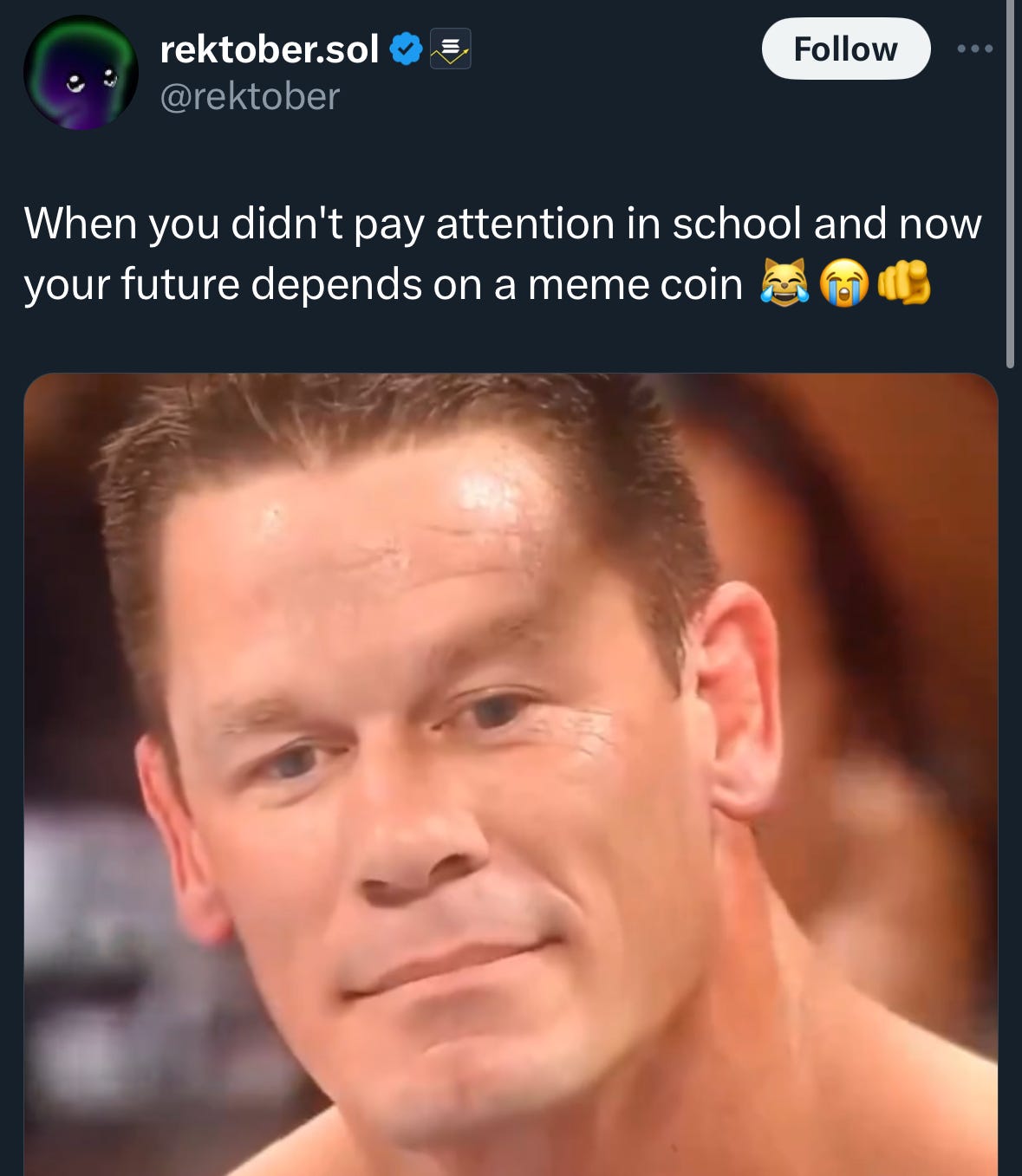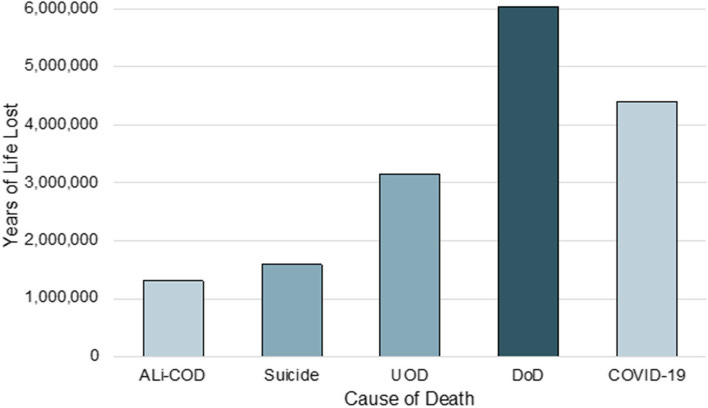Crypto: The Infinite Game
The game must be played.
When I was a kid, I had a particular affinity for chess. I would stay after school to play with my friends, I would beg my mom to let me play the hustlers at the park, and I would sit patiently at tournaments while the grandmaster would go around and play 50 people at a time. I even got flown up to Carson City to play in Nevada’s State Championship (where I got 2nd, see my sick trophies below).
No game has ever grabbed my attention and focus like chess has. Its rules are extremely simple, but the game itself has an astounding level of complexity and strategy. Even after a lifetime of study, there remains an inexhaustible plethora of new ideas and strategies.
Former World Champion Vladimir Kramnik once explained, "Chess is an infinitely complex game, which one can play in infinitely numerous ways." This complexity allows chess to challenge every aspect of a player's mind, from logic and memory to creativity and psychological resilience.
As I’ve grown older, my hobbies have become increasingly financial in nature, culminating in a career in venture and crypto. When I reflect back on my path, it’s pretty easy to draw parallels between the infinite games of my childhood and that of my adulthood. I traded knights and rooks for tokens and perps.
I often get the question “why are you in crypto?” from strangers at dinner parties, (real) girls at bars, my parents, etc. My answer is always two-fold: crypto is an infinite game, and they did this to us.
The Set-up: We’re Poor, Lonely, and Dying
A game might be super fun and addicting, but people still need to want to play it or seek it out. When examining recent trends in debt, loneliness, and despair, it’s easy to see the allure of crypto and its ability to provide hope to an increasingly desperate and hopeless population.
We’re Poor
The economic landscape for young adults has drastically shifted over the past few decades, creating a stark contrast in wealth accumulation between generations. This widening gap has forced many young people to adopt increasingly risky financial strategies just to stay afloat.
One of the most significant factors contributing to this dire situation is the rising cost of education coupled with stagnant wages. According to the National Center for Education Statistics, the average cost of college tuition and fees at public four-year institutions has increased by 179% between 1980 and 2019, when adjusted for inflation. This has led to unprecedented levels of student debt, with the Federal Reserve reporting that Americans owed over $1.77 trillion in student loans as of 2023.
This increased debt load has profound implications for young adults' ability to save and invest. As author Alissa Quart pointedly observes in her book Squeezed: Why Our Families Can't Afford America, "This is not just a story of young people living beyond their means. This is a story of an economy that has gone beyond its means for the young."
Wages have not grown in kind, with the 50th percentile actually seeing a small decline in real income over the past 40 years, and the upper quartile seeing modest gains. Job security gives very little reprieve, as well. 78% of people worry about losing their job in a recession, and this remains one of the largest stressors globally. With recent advancements in AI, it’s apparent that many of these fears will be realized, and entry-level jobs have never been more at risk.
The money that we do make has significantly less purchasing power, with inflation rising nearly 21% since February 2020. Taxes have become a money pit, with over 76% of personal income tax going directly towards interest payments on national debt, not even paying down the principal.
One could argue that the stock market and current financial system have its own form of infinite game, but the main issue is that that system increasingly feels rigged to young outsiders (not to mention that most of the world doesn’t have proper access to US financial markets or dollars). Distrust of financial institutions has grown since the 2008 financial crisis, and the Edelman Trust Barometer found that the financial sector is the least trusted, with 70% of people believing that the system is biased against regular people. This sits in tandem with all-time highs distrust of news sources, which have grown to 76% of people globally. It’s hard to play a game you feel like is rigged against you.
Young people believe that the existing system gives them little hope to lead the same lives as their ancestors, and rising, inescapable debt forces them to become wage slaves that crush them underfoot. There is a limited window with which young people can hyper-gamble and speculate, and it’s not difficult to see why asymmetric returns in crypto are enticing to people who have been stripped of their hope.
You can see similar trends in sports betting, where young people have flocked to bet on March Madness, The Super Bowl, and who will win Love Island. 39% of Americans now bet on sports, and annual U.S. commercial sports betting revenue eclipsed $10B (up twelve-fold from 2019). And this is an industry that is designed to defeat the individual. If you start with $100 trillion and bet $1 on red at the roulette table until you are either up $100 or you have lost $100 trillion, you have a 99.99735% chance of losing $100 trillion.
We’re Lonely
We are witnessing an unprecedented rise in loneliness across all generations. The COVID-19 pandemic has likely exacerbated this trend, with a Harvard Graduate School of Education survey reporting that 61% of young adults aged 18-25 reported feeling "serious loneliness" in 2021. A 2018 study by Cigna found that Generation Z (adults aged 18-22 at the time) had the highest loneliness scores of any generation, and they also spend the most amount of time on-screen at over 9 hours a day on average.
Loneliness is its own pandemic, and it saps one’s hope, outlook on life, and future prospects. The effects of loneliness in individuals is well-studied and known to be a catalyst for depression and substance abuse. It’s been known to increase mortality rates, and is one of the most dangerous issues facing young people today.
Despite being more connected than ever on paper, social media has actually ushered in an era of social comparison that has exacerbated the issue. Loneliness has had a major impact on perceived social status in young people and changed the status games that people play as focus shifts towards follower counts and how well you fit within an algorithm. We’ve even seen online personas trump authentic selves, as many people are willing to undergo public, real embarrassment for online clout.
There are many different reasons for the rise of loneliness in society like the death of the Third Place, increased isolationism, distrust, etc, but the fact remains clear that this is a problem that needs to be solved in the US. The value of synchronous communities becomes much more clear when examined in this context.
We’re Dying
Loneliness and poverty have directly contributed to the rise of deaths of despair and a broadening lack of hope for the younger generation. Deaths of despair (DoD), which include death from alcohol, drug overdoses, and suicides have risen to unprecedented levels since the pandemic. Given the young age of the victims of DoD, the estimates of the loss of potential life sit around 6 million years. Excess US deaths under 65 doubled between 2000 and 2019, and then increased by an additional two-thirds between 2019 and 2021.
The effects of this catastrophic loss of potential life are not immediately seen, but will reverberate throughout the next several decades. Despair is itself contagious, and hopelessness and nihilism has bled into our culture from every angle. Hope is increasingly rare, and without it, we will continue to see these issues worsen.
What is very apparent in all of these trends is that young people are in a crisis unlike anything the world has ever seen, and there exists deep hopelessness in almost every facet of young people’s lives. The desire to seek out escapism has led to increased isolationism and brain rot, risk-taking, and potentially harmful thrill-seeking. The kids need hope.
Crypto is hope in an infinite game
Enter crypto. Crypto, at its core, is able to provide a sense of financial freedom and community, and stands as a rejection of the systems and institutions that people distrust. Its ideals promise an antidote to many of the issues plaguing young people today. Tokenization leads to speculation, or financialized hope.
Hope for infinite possibilities
A major part of crypto’s allure for the better part of the last decade has been its ability to offer an Infinite Game. It’s a party at someone else’s house. The rules are undefined and can change, new players can join at any time, and there's no clear "winning" condition. Unlike traditional markets with clear closing times and defined rules, the crypto market operates 24/7, constantly evolving and presenting new opportunities. It is unburdened by what has been, and it’s a much more even playing field for its participants.
This endless nature taps into the human desire for continuous engagement and the thrill of possibility. It’s one of the reasons chess is so popular. Despite the game having generally the same structure and starting position, there are 10^40 different possible legal combinations (which is basically infinite unless you want to be annoying about it). Very few games are alike, no matter how many times you play. This maintains a level of freshness that is critical to retention.
The infinite game aspect of crypto also manifests in the constant emergence of new coins, technologies, and trading strategies. Traders are drawn to the idea that the next big opportunity is always just around the corner. This creates a sense of FOMO (fear of missing out) that keeps people engaged, regardless of their experience level. There’s always another game to play.
Hope for wealth
The decentralized nature of crypto means that anyone can participate, regardless of their background or geographical location. The democratization of finance is appealing to those who feel excluded from traditional financial systems or dollar-denominated savings. Crypto is an infinite game where the barriers to entry are low, and the potential rewards feel limitless.
The asymmetric opportunities in crypto have long been its most effective customer acquisition tool. Nearly everyone on the planet has heard the gripe of a person that sold their bitcoin too early. It is most effective when coupled with despair and hopelessness, similar to the circumstances that lead people to buy lottery tickets. The infinite nature of crypto lends itself to repeat play because there’s always going to be another chance at generational wealth to those willing to stick to the game.
When the majority of young people feel as though the older generations have robbed them of equal opportunities, there remains one arena in which they have a unique advantage: internet culture. Young people have found ways to financialize culture ever since the digital age began, creating new roles like “social media manager” and shifting the way companies think about messaging and identity.
Crypto has taken this a step further by streamlining financial games, shifting attention away from quarterly financials and towards where the eyeballs are or what people are talking about. This creates a much purer (and admittedly simpler) game that is easier to play. It is no surprise that memecoins have found their place with a younger demographic who are able to put capital behind things they find funny, as opposed to Spirit Airlines’ next earnings report.
Prediction markets have supplanted mainstream media-led polls as more accurate, unfiltered predictors of elections and major events. Given rising distrust of the media and widespread misinformation, they’re increasingly seen as incentivized truth machines. As Alex Tabarrok once said, “a bet is a tax on bullshit,” and users that are able to see past the bullshit have the opportunity to financialize and profit from that truth. These are the wars we wage.
Hope for community
The social aspect of crypto trading also contributes to its draw. Outside of sporting events and bars, there are few opportunities for people to enjoy synchronous communities. Social media is typically asynchronous and often combative, and though the cringey “wagmi” culture from 2021 is long gone, the broader sense of community and tribalism has persevered.
In crypto, Discord communities, governance forums, and platforms like Twitter and Farcaster create a never-ending stream of discussion and speculation. Participants are able to collaborate and compete with one another in a complex, ever-shifting landscape. This sits in stark contrast with the faux-governance of traditional equities and the increasingly banal nature of B-list celebrity and reality tv-focused social media.
Most jobs or financialized activities are largely lonely or persona-independent endeavors. The Gamestop mania was unique in that it was one of the first times a community formed around equities, and we all saw the power of an aligned, incentivized community. Within crypto, you are able to find a tribe, and many people often do so under anonymous or pseudonymous accounts. in the same way that gamers find ways to become new, idealized versions of themselves.
The next chapter
I am not so naive as to ignore that crypto has often fallen short, and many times hope has been used as a weapon to take advantage of the desperate. An infinite game can be ruined by deception and cheating; just look at what happens when grandmasters or sports referees or MMA judges are accused of tampering with the sanctity of the game.
I am also not so nihilistic to claim that it’s only a casino. While speculation is a necessary ingredient in innovation, we must not ignore the successes and potential of permissionless systems. For those in emerging markets, crypto gives people the opportunity to access dollar-denominated savings and avoid horrible inflation and corruption in their home currencies, as well as the predatory fees of remittance platforms and Western Unions. Crypto is one of few channels for people to elevate their financial status, operate businesses, and send money to their families. Sometimes the circus blinds us to the philosophical ideals that got us together in the first place.
As an industry, we have not been aggressive enough at rooting out bad players and mal-intentioned individuals. This has a lot to do with the nature of the cycles and evolving nature of the industry, but at some point, the cops get called to break up the party, and no one wants to be at a party with a bunch of bad people. The beauty of the infinite game is in its longevity and complexity, and the very essence of our industry is being threatened now more than ever before. We sit on the shoulders of giants, on the precipice of infinity, and yet we are largely too afraid to believe in something enough to defend it. It must end. The game must be played.






